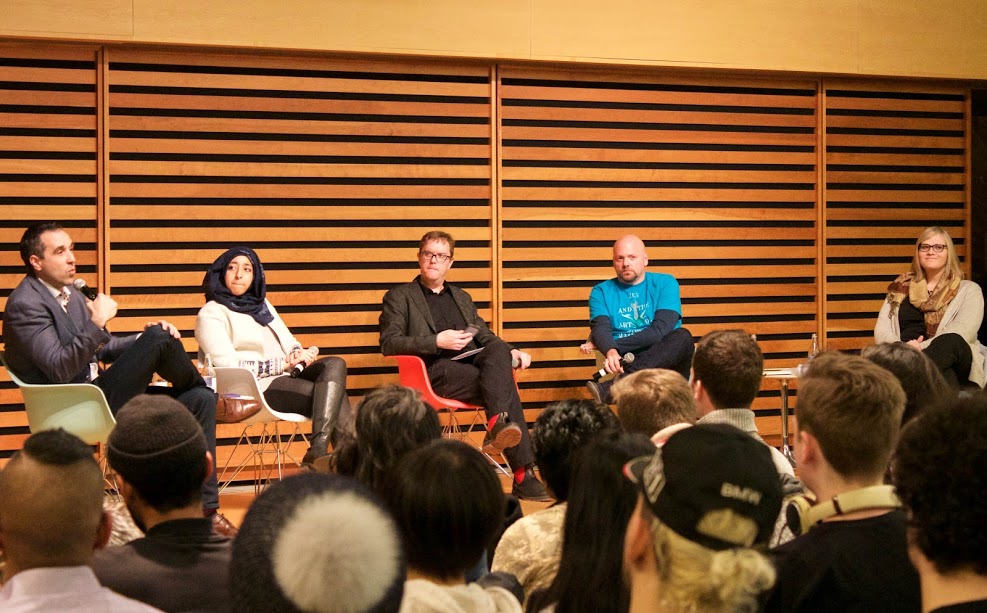Victoria Silman | Contributor
Featured image: Integrate.AI CEO Steve Irvine answers a question at the “Ghost in the Machine” debate. | Victoria Silman
The Lassonde School of Engineering hosted a free event at the Bram and Bluma Appel Salon on January 29, in the Toronto Reference Library called “Ghost in the Machine.”
The debate was the second installment in the Next 100 series, free public events which discuss the changes society may see through the development of technology—artificial intelligence (AI), specifically, in “Ghost in the Machine”—over the next century.
The panel was moderated by Jesse Hirsh, who focuses his research on artificial intelligence and democracy; and included Dot Health CEO Huda Idrees; Canadian Research Chair in Ethics, Law, and Technology at the University of Ottawa, Professor Ian Kerr; Steve Irvine, founder and CEO of Integrate.AI; and Assistant Professor of Philosophy at York Regina Rini.
The debate was broken down into three themes to guide the discussion: status update, where society is headed with the current status quo, and the utopian and dystopian potentials that AI could be moving towards.
The discussion led into what Hirsh describes as the thought of “utopia, dystopia, or Black Mirror, which is: we will all take the opportunity to prescribe the world that we think is necessary to both harness the opportunities presented by AI and all technologies, as well as mitigate the risks and potential harms.”
Christina Bui, a co-op student in Mechanical Engineering at U of T, particularly enjoyed the varying perspectives on AI.
“We had two different schools of thought on what the future of AI is, and how we should think about it. I guess to be kind of a sucker for the talk, it was the overwhelming optimism that is really encouraging,” she says.
Agreeing with her sentiment, fellow U of T Industrial Engineering student Ilya Kreynin explains: “what was, I think, most inspiring and most powerful, was both the academic and industry side of the aisle were very optimistic of what AI can do in the future, and were thinking of intelligent ways to limit it.”
The discussion dealt with the future of students, who are facing a shift in the workforce because of AI. When asked about how technological advancements are affecting students, Rini explains that critical thinking is key for students focused on bettering their chances at being hired in a society run by technology.
“I mean, that sounds kind of easy to say, like a truism, but it’s something AI is not good at. AI is really good at pattern recognition; it’s really good at prediction and generation of content-matching existing patterns, but it’s not really good at ‘why’, ‘how-do-you-know-that’ questions, or questions of justification. I think that’s a special human skill that more and more employers will recognize,” she says.
Echoing this, Irvine explains how critical thinking, mixed in with soft skills, are essential for young people to learn going forward: “I think we value people with a clarity of thought, but I think, above clarity of thought, is people that are first principle thinkers.”
The next installment of the Next 100 debate series, “Electric Dreams,” will be hosted at TIFF Bell Light Box, with a date to be announced.




